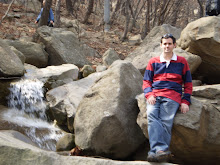This year, the Seoul Bar Association announced that it would implement judicial evaluations for judges around Seoul. Read about it here and here. A little background on how judges become judges here seems in order. Roughly, what happens is that a bunch of folks take the bar exam and a certain number (up to now, 1000) have been allowed to pass. Of those that pass, the top scorers become judges, the next become prosecutors, and the majority below are relegated to private practice.
Judges and prosecutors, as one article mentions, eventually go on to private practice themselves after a while. This means old lawyers, who themselves sometimes were judges, are practicing before and evaluating younger judges on items like "upholds the dignity of the office" and "is impartial to both sides." Even in the United States, a judge faced with an older lawyer who used to sit on his bench could prove intimidating. Could this be a more serious problem when that older ex-judge lawyer is actually holding the judge's report card, in a country where Confucianism dies hard?







No comments:
Post a Comment